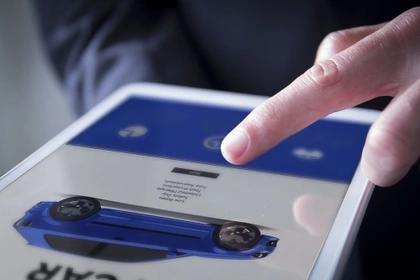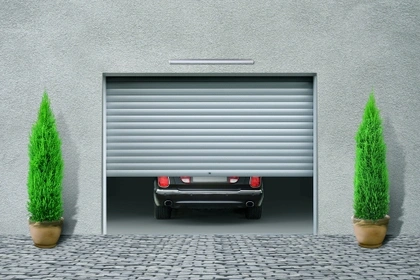Why does it affect my premium?
Your car insurance group affects your premium because higher insurance groups are more expensive. This is usually due to the fact that cars in these categories are newer, higher performing, or more expensive to repair.
Every privately owned car in the UK is categorised into a different insurance group.
There are 50 insurance groups for cars – Group 50 is the most expensive and Group 1 is the cheapest car insurance group. They are set by the Group Rating Panel, who are administered by Thatcham Research and whose members include:
- The Association of British Insurers (ABI)
- Lloyds Market Association (LMA).
Although some insurers will categorise a car’s insurance group independently, in general the decision is based on some common factors. These include:
Damage and parts costs
The total cost the insurer would have to pay for parts to repair the car contributes largely to a car’s insurance group. Typically, the less extensive the damage is and cheaper the parts are, the lower the group it will be in.
Repair costs and times
Generally speaking, it costs more to fix a car that takes longer to repair. Group ranking factors in labour time and repair costs because of this.
New car values
Newer cars are typically more expensive and how much the car is worth is also taken into account.
Parts prices
There is a standard list of 23 common parts available from car manufacturers, indicating how much each part would cost the insurer.
Car performance
High-performance cars are often higher on the list because, statistically, more insurance claims are made on them. For example, an Audi A6 might be in Group 50 and a Fiat Panda may be in Group 1.
Car safety
If your car is fitted with safety features, like Autonomous Emergency Braking, it’s less likely to be involved in low-speed accidents. This is taken into consideration.
Car security
You can also fit security features like alarms, high-security door locks, and glass etching to decrease the chance of your car getting broken into. Again, this will impact the group your car is in.
Bumper compatibility
The structure of both your rear and front bumper has a direct impact on the insurance group your car is placed in. If your car’s bumper is compatible with your insurer’s criteria, you could qualify for a lower insurance rating.
Average annual premium by car insurance groups
It’s good to know which insurance group your new, or existing car, belongs to, so that you can get the best annual premium possible. The lower the group ranking, the cheaper the premium (generally speaking). This is because they cost less and take less time to repair.
Older cars are more likely to have lower group rankings and therefore cheaper insurance. However, this might not apply to classic cars with parts that are hard to source and expensive to fix. More powerful and valuable cards tend to be higher up on the list.
You can easily find out your car insurance group by using the vehicle search tool on Thatcham Research's website.
Note: Insurers often use the panel’s recommendations when they calculate car insurance premiums. However, sometimes they use their own factors.
What else can I do to reduce my car insurance premium?
If you have your heart set on a particular make and model of car that isn’t in the cheapest car insurance groups, there are other things you can do to reduce your car insurance premium, including:
Pay your premium in one lump sum
Car insurance companies generally offer a discount if you pay your premium in one lump sum, rather than spread over monthly or weekly payments.
Avoid auto-renewal
Auto-renewal generally means the price will go up. Besides, that insurer may no longer be the cheapest one on the market for your car and personal circumstances. It’s definitely worth shopping around again once you need to renew your car insurance.
Increase your voluntary excess
Your voluntary excess is how much you pay when and if you need to make a claim. This is a fixed amount you agree on at the start of your contract. A higher voluntary excess could make your car insurance cheaper.
Limit your usage to domestic, social and pleasure only
When you register for insurance, you’ll be asked what you use your car for. ‘Business use’ can actually push up the price of your car insurance premium. If possible, you could try limiting the use of your car to domestic, social and pleasure.
Get black box insurance
Black box insurance is often cheaper if you’re a very safe driver because it uses GPS technology to measure how you drive, like whether you speed, etc. This can be a good idea for young drivers, who are often subject to higher premiums.
Drive a low powered car
Since high-powered cars are often in the higher (and more expensive) car insurance groups, it makes sense that driving a lower-powered one will decrease your premium costs.
Limit your milage
You’ll have to declare your overall annual milage to your insurer. Reducing it can also reduce your insurance premium.
Secure your car
If your car is kept in a secure place overnight, or when it’s not being used, insurers will think that it’s less likely to get broken into. Investing in a garage might be a good idea. If you can’t do this, ask your insurer which safety features they approve and install these.
Build up a no-claims discount
If you don’t claim on your car insurance for a certain period of time, your insurer might offer you a no-claims discount. These vary between different companies, so make sure you research the market to find the best deal for you.
If your insurance is up for renewal, find out the steps you need to take to change insurance providers.
Compare cheap car insurance quotes
- Search over 100 providers
- Quick and easy comparison tool
Disclaimer: All information and links are correct at the time of publishing.





